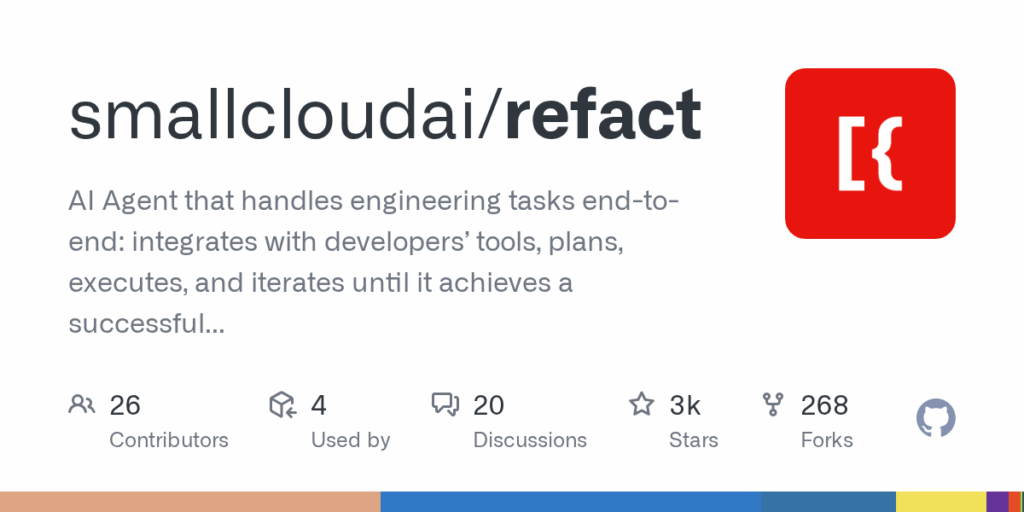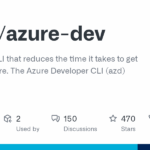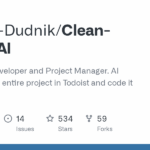refact
Basic Information
Refact is an open-source AI software development agent designed to autonomously handle end-to-end engineering tasks within real codebases. The repository provides the agent, plugins and self-hosting options so developers can run an AI that deeply understands project code, integrates with existing tools and automates complex multi-step workflows. It targets developer workflows by offering integrated in-IDE chat for VS Code and JetBrains, support for on-premise deployment and Docker images, and the ability to connect external LLMs with bring-your-own-key. The agent is positioned to generate, refactor, explain and debug code, produce unit tests and documentation, and interact with version control and databases. The README emphasizes practical setup paths including pip installation, Docker deployment, plugin configuration and documentation for users who want to run or extend the agent in their own environments.








